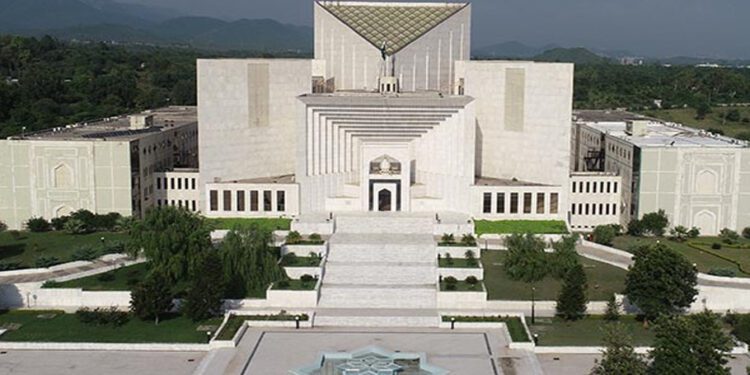![]() Follow Us on Google News
Follow Us on Google News
ISLAMABAD: Pakistan’s Supreme Court has defended its top judge after a ruling he issued related to blasphemy that sparked an online backlash and led to thinly veiled death threats.
The commencement of the campaign against Supreme Court Chief Justice Qazi Faez Isa ensued subsequent to his directive for the release of an individual belonging to the Ahmadi religious sect, which is deemed heretical by staunch Muslim scholars.
The individual stood accused of circulating a prohibited Ahmadi text, an act fervently condemned by firebrand clerics as blasphemy, a highly contentious issue in predominantly Muslim Pakistan where unproven allegations of disrespecting Islam have incited violence on numerous occasions.
In response to the backlash, the Supreme Court released a statement on Thursday evening defending its verdict, refuting claims that it contradicted the Islamic constitution.
The statement emphasized, “This notion is entirely erroneous. The orchestrated campaign against the judiciary and judges is regrettable.”
Initially overlooked, Isa’s ruling gained attention two weeks later when it was spotlighted by social media channels affiliated with the Tehreek-e-Labbaik Pakistan party, notorious for its involvement in violent anti-blasphemy demonstrations.
The Tehreek-e-Taliban Pakistan (TTP), a militant group commonly known as the Pakistani Taliban, labeled Isa as “an adversary of Islam” and “a condemned individual.”
Ahmadis have long faced discrimination and persecution in Pakistan. The country’s second constitutional amendment, enacted in 1974, officially designates Ahmadis as non-Muslims. Moreover, Ahmadis are prohibited from professing their faith or disseminating it, with the penalty for perceived insults against Islam potentially being death.
In his verdict, Isa cited the constitution, affirming that “every citizen is entitled to profess, practice, and propagate their religion.”
He lamented, “The freedom of faith stands as a fundamental principle of Islam. However, regrettably, in matters of religion, emotions often run high, forsaking the Quranic directive.”
Furthermore, Isa noted that the book allegedly circulated by the accused was not prohibited at the time of the purported offense in 2019.
Cleric Fazlur Rehman, a prominent figure within the conservative religious party Jamiat Ulema-e-Islam, denounced Isa’s rationale as “misleading and driven by malicious intent.”
The backdrop of stringent blasphemy laws was underscored by the assassination of the governor of Punjab province in 2011, perpetrated by his own bodyguard following the governor’s advocacy for reforms to these laws.

























